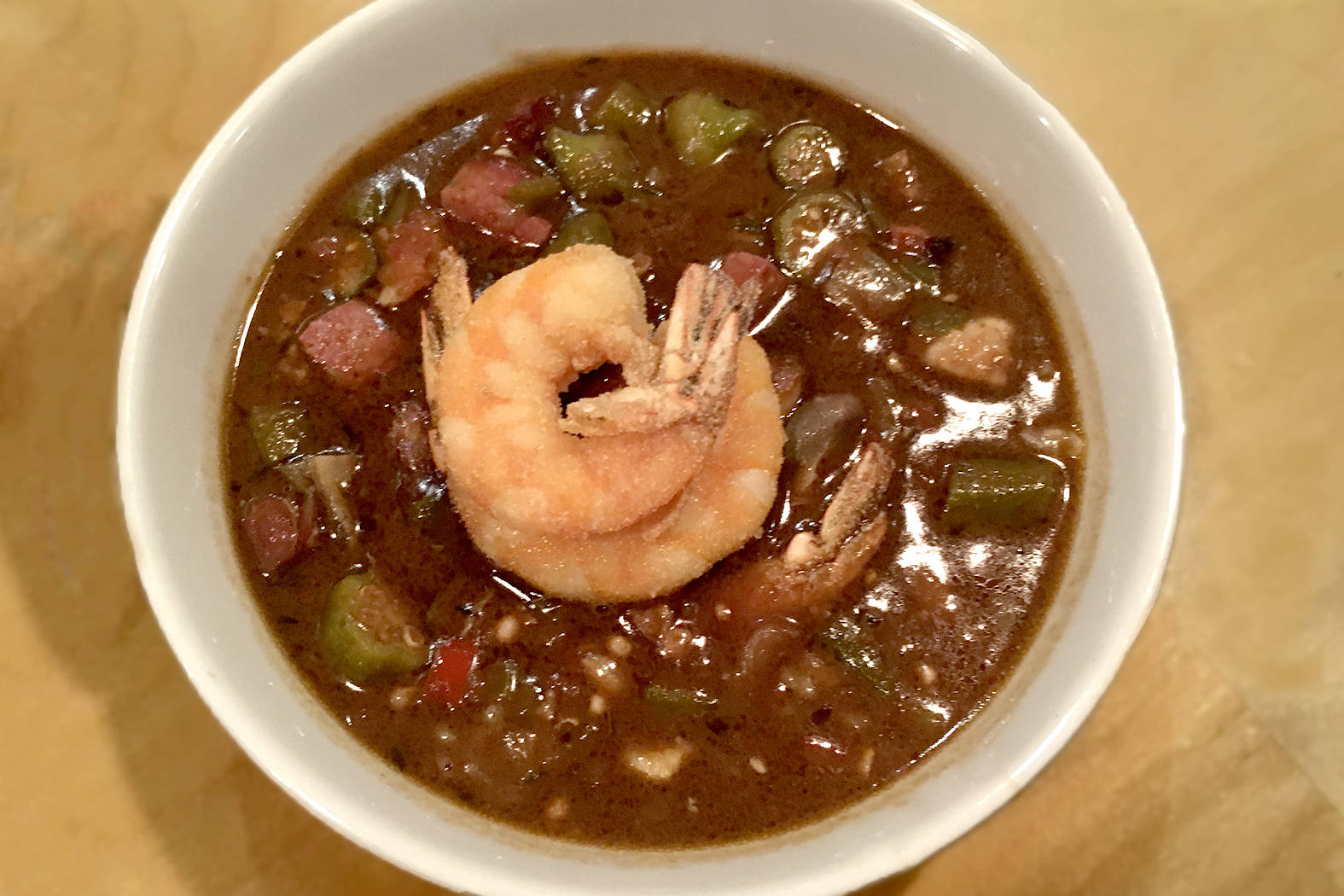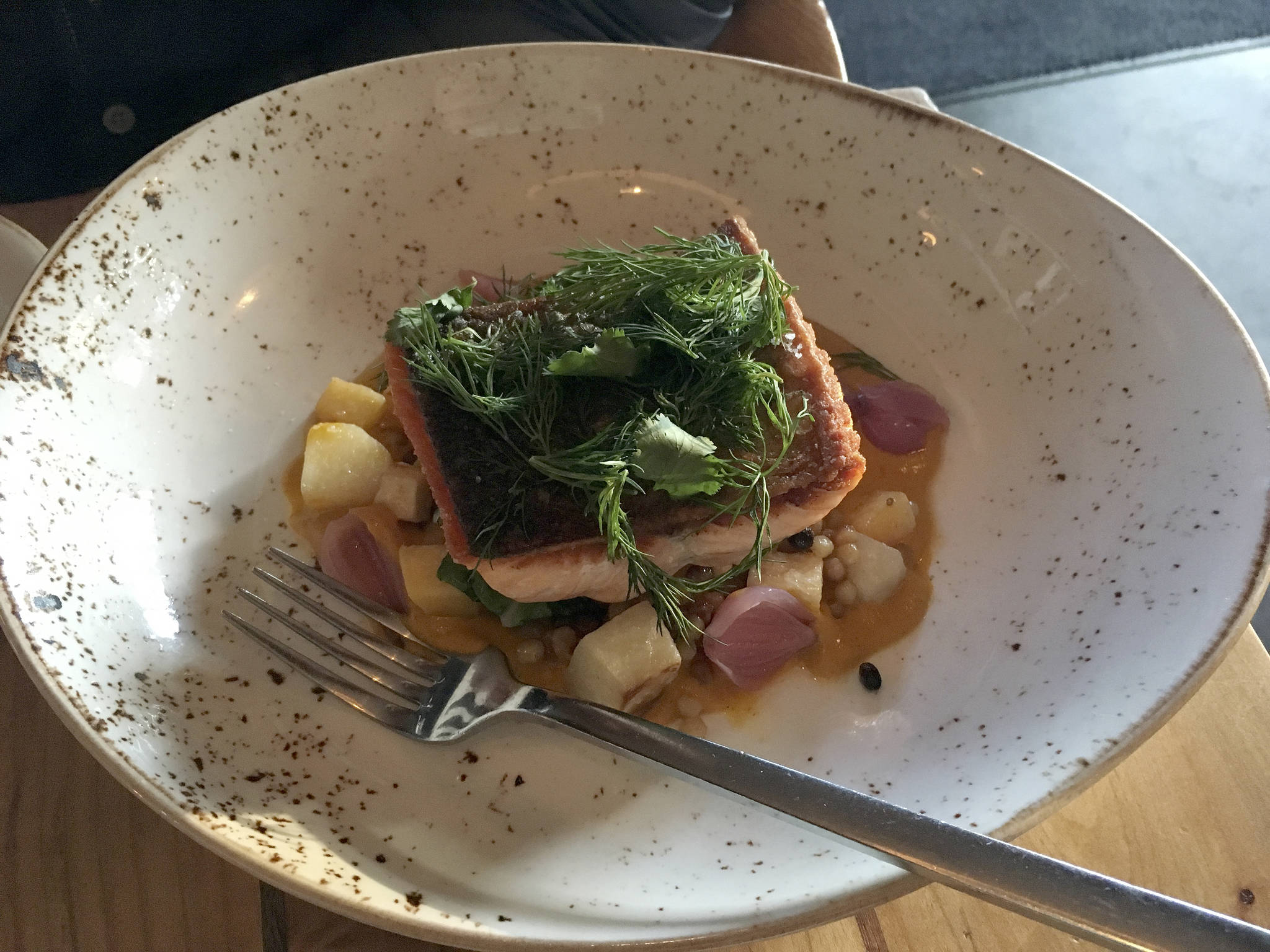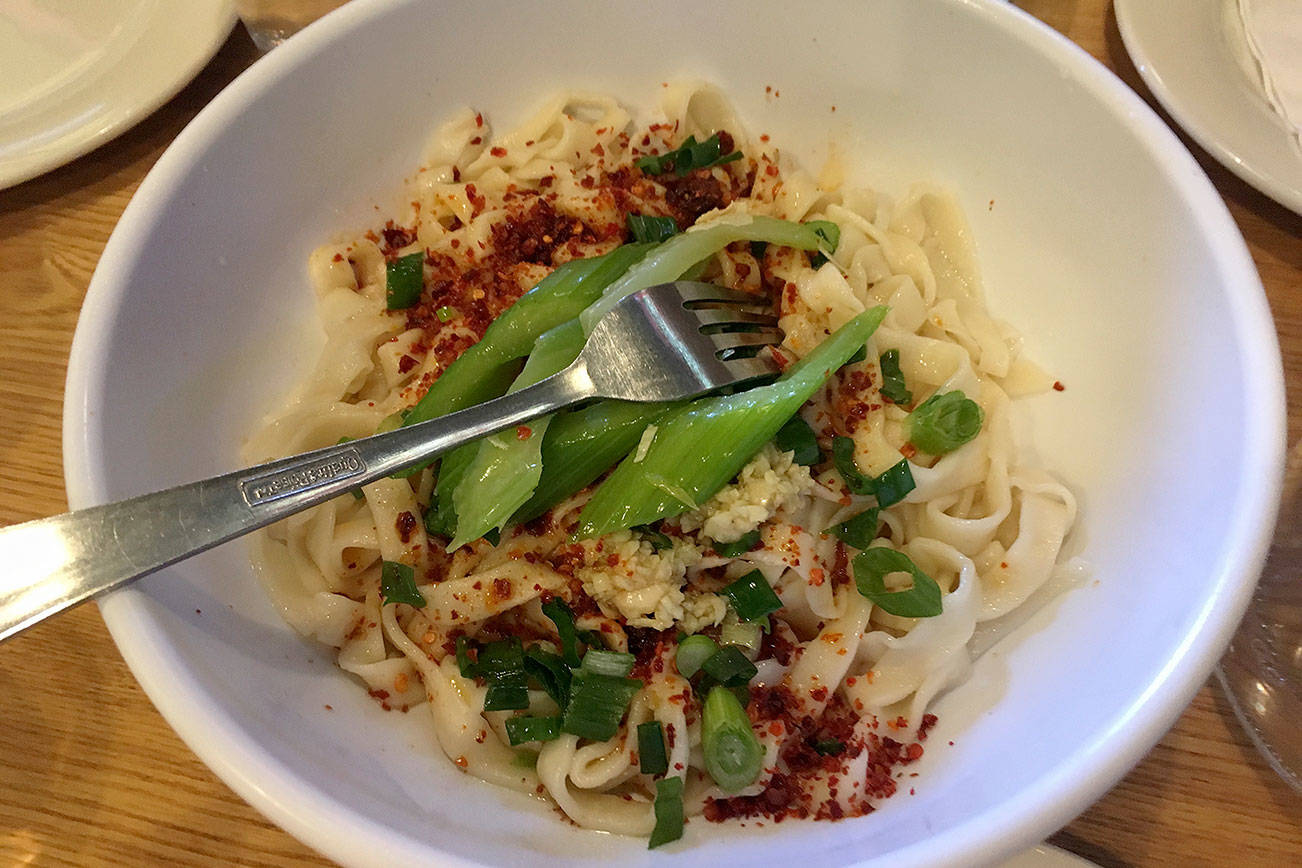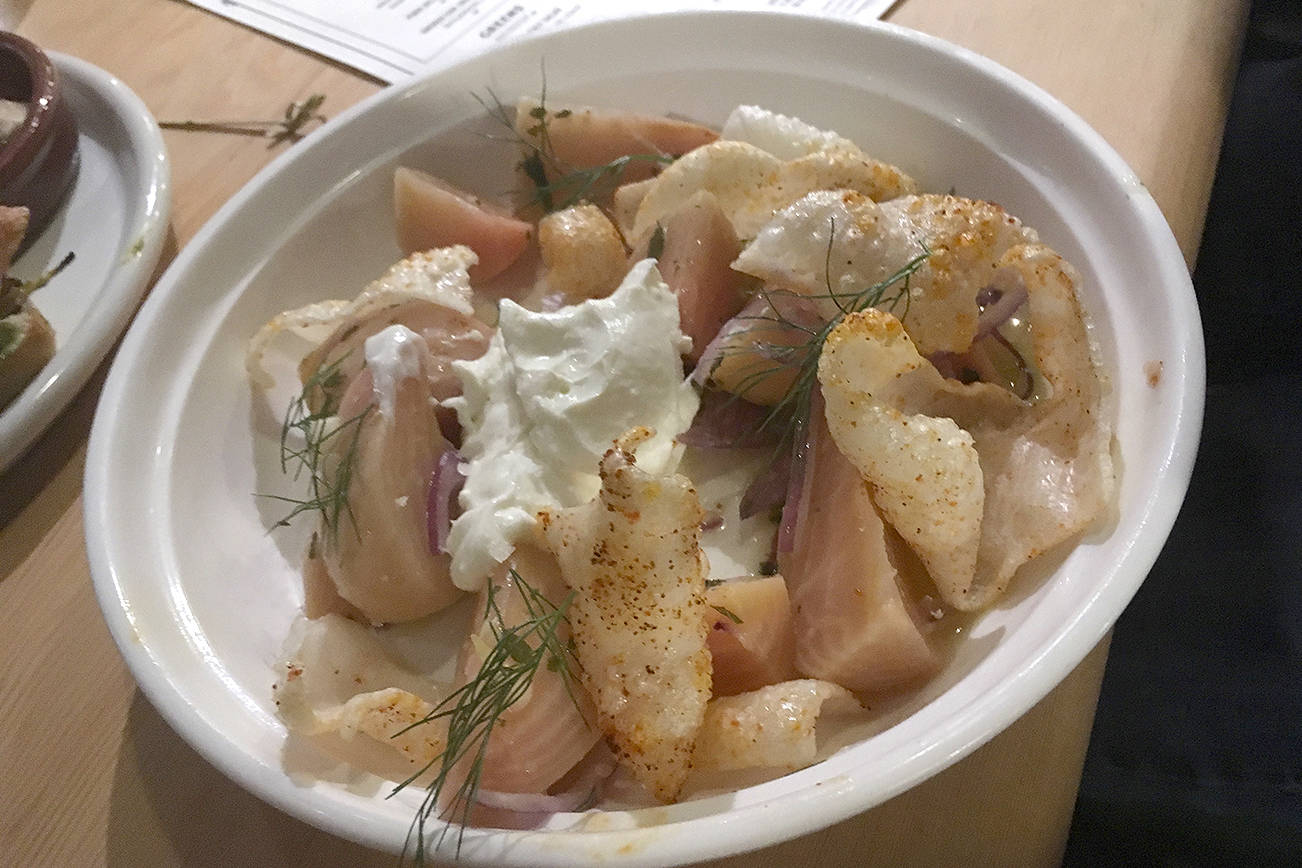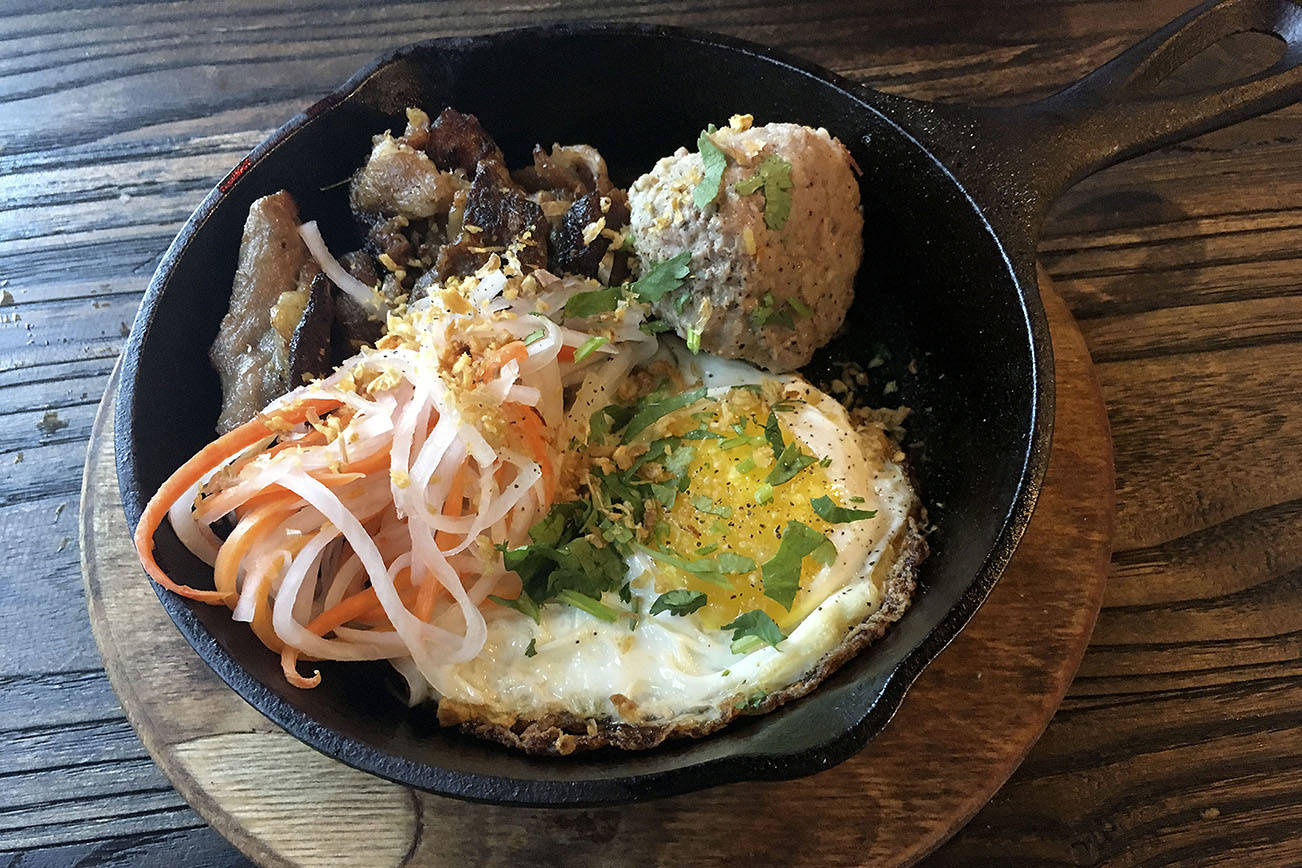When Edouardo Jordan opened his first restaurant, Salare, in sleepy Ravenna two years ago, diners were optimistic. It surpassed expectations and then some, with the former chef of Bar Sajor making it to the James Beard finals for Best Chef Northwest. The restaurant—its menu culled from the cuisine of Africa, the American South, the Caribbean, and Europe—is a place where diners can order duck cracklins or roasted duck with rhubarb, quinoa, liver mousse, and huckleberry gastrique.
Now, just a couple blocks down the road, Jordan has opened a second spot, JuneBaby (2122 NE 65th St., 257-4470), where he’s taken on Southern food specifically—and explicitly. Jordan doesn’t mince words. On the restaurant’s website, he explains that “Southern food reflects hard times and resourcefulness and is nothing short of beautiful. It is a cuisine to be respected and celebrated.”
Take the shrimp gumbo, the first bite of which elicited a look of sheer pleasure from my dining partner. A spoonful later, I understood why. Gumbo so often becomes a cornstarch-laden, one-note soup; Jordan reminds us of the complexity possible when it is painstakingly crafted. From his short-grained “Mississippi” rice with just the right bite to his diced hot link and small rounds of okra, the elements are well-proportioned, but it’s the broth that beguiles. You can taste the layers of flavors built here, of chicken stock and a dark roux made from bacon fat, grapeseed, and flour cooked down for two hours, the smokiness never overwhelming. Three large, handsome head-on shrimp crown it, coated ever so delicately in semolina. Eaten with a side of antebellum buns and honey butter, it’s a perfect meal. The buns, like dinner rolls but made with low-gluten flour, emmer, and whole wheat rather than white flour, have soaked up butter, and their yeasty profile is assertive; dunked into honey butter, they become decadent. The rolls were a great consolation prize, recommended by the server, as to my dismay they’d run out of their cornbread. I suppose it was to be expected given an hour wait at 7 p.m. on a Saturday.
In fact, JuneBaby was so crowded that when our names finally came up, bar seats were the only option. No matter; this is a bar that feels like a true extension of the kitchen, where Jordan’s face often pops out of the window to deliver food to the servers. The bartenders are friendly, and great educators too. The vibe they impart, busy yet attentive, fits the bustling, inviting space, in which two large pieces of art dominate: One, a photo collage of bent tree boughs dripping with moss, looks like it could be straight out of the South or the Pacific Northwest (it’s from the former); the other is an abstract painting of a jazz club. Blonde wood floors match the tables, and light-red and beige full-length curtains adorn the windows. Ceramic light fixtures that look like they have been burnt on the edges punctuate the ceiling (and are made by the same artist who created the signature votives at Salare). One wall’s shelves are lined with all matter of pickled items—and remind me of trips to the basement to grab canned tomatoes, bread and butter pickles, or peaches for my mother during my childhood in Maryland and Virginia.
Back to the menu: Our server/bartender led us to another dish that we likely wouldn’t have found on our own, and that reiterates how Jordan brings the unexpected. A composed salad of “swamp cabbage” (aka hearts of palm) shares the plate with pickled onions, haricots verts, and some large white pickled strawberries along with petite fresh ones—all drizzled with a piquant salsa verde. This is not the usual pickle plate that every restaurant seems to have adopted lately. Here, a light touch assures that none of the fermented items loses its elemental flavor, yet strawberries become almost vegetal while sweet onions take on a fruitiness. That playful “things aren’t what they seem” quality is thoroughly impressive.
Meanwhile, half of a smoked jerk chicken is again easy on the smoke, not subsumed by it—the meat juicy, the skin amber-hued. The jerk spices are a tad too subtle, though; I caught them just once or twice on the back of my throat. I was glad, then, for the accompanying red-pepper marmalade to dunk it in, as well as the scattered bites of fried okra, and a housemade collection of hot sauces, the habenero in particular. Catfish is not the least bit greasy, but fried with the intent to validate the protein. Its lushness comes instead from the creamy grits in which spinach and a few delightfully pickled fiddlehead ferns commingle. Pulling it all together is a “red sauce”—a name that defies its dynamism, made with tomato, fennel seed, shrimp, cognac, and onion.
Full as a tick, I found myself still craving the cornbread, particularly since the couple next to us were noshing on it. When I asked if they’d made more, I was told there were four left. Hallelujah! Out it came in a mini-skillet sitting on a pretty china plate (that reccurring theme of rustic and polished!), golden-brown and glazed with sorghum molasses. It’s not too sweet (though you can get more molasses on the side if you want). I preferred it just as it was, its sweetness a note, not the whole song.
Dessert had to be sampled, and the offering made choosing difficult: hummingbird cake, coconut cream pie, strawberry shortcake, rhubarb cobbler. We went with the last, and, as in the cornbread, its sweetness is tempered. This is a cakier cobbler than I’m used to, but I love that they took on the rhubarb without adding strawberries (the more common preparation due to rhubarb’s sourness). That decision, to me, exemplifies what’s going on at June Baby overall: There’s no pandering to expectations of what Southern food is, but rather a bold, decisive interpretation that still honors tradition.
nsprinkle@seattleweekly.com
